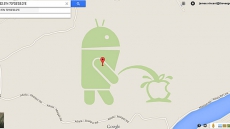NEW YORK — A Virginia jury has issued a $25 million verdict against Cox Communications in an online piracy case that could mean more trouble for downloaders of illegal content.
Music company BMG had sued Cox in 2014, saying the cable company wasn't forwarding warnings about illegal downloads to its customers or stopping their behaviour, even when the cable company knew about it.
Both sides saw this case as "trailblazing," said Marquette University Law School professor Bruce Boyden, and it makes clear that Internet service providers, or ISPs, are obliged to respond to takedown notices from rights holders.
The jury said Thursday that Cox customers infringed on BMG copyrights by uploading or downloading its songs on file-sharing BitTorrent systems, and that Cox was liable.
Cox spokesman Todd Smith said the Atlanta company is considering its options, including appeal.
Attorney Michael Allan, the lead counsel for BMG, said in an emailed statement that the decision "sends a message to ISPs that they have a responsibility to act upon and limit the massive copyright infringement using their networks that has been brought to their attention by copyright owners."
Boyden said that after this case, customers will be more likely to get forwarded copyright infringement notices from an ISP. These notices can tell customers how to settle with rights holders.
And, assuming that the case is appealed and upheld, he said that "cautious" ISPs would be more likely to consider cutting off service to repeat offenders.
Several major cable and phone companies (but not Cox) were already participating in a voluntary copyright alert system that pinged customers for illegal sharing. Customers who ignored warnings could have their home Internet service temporarily slowed or downgraded.





